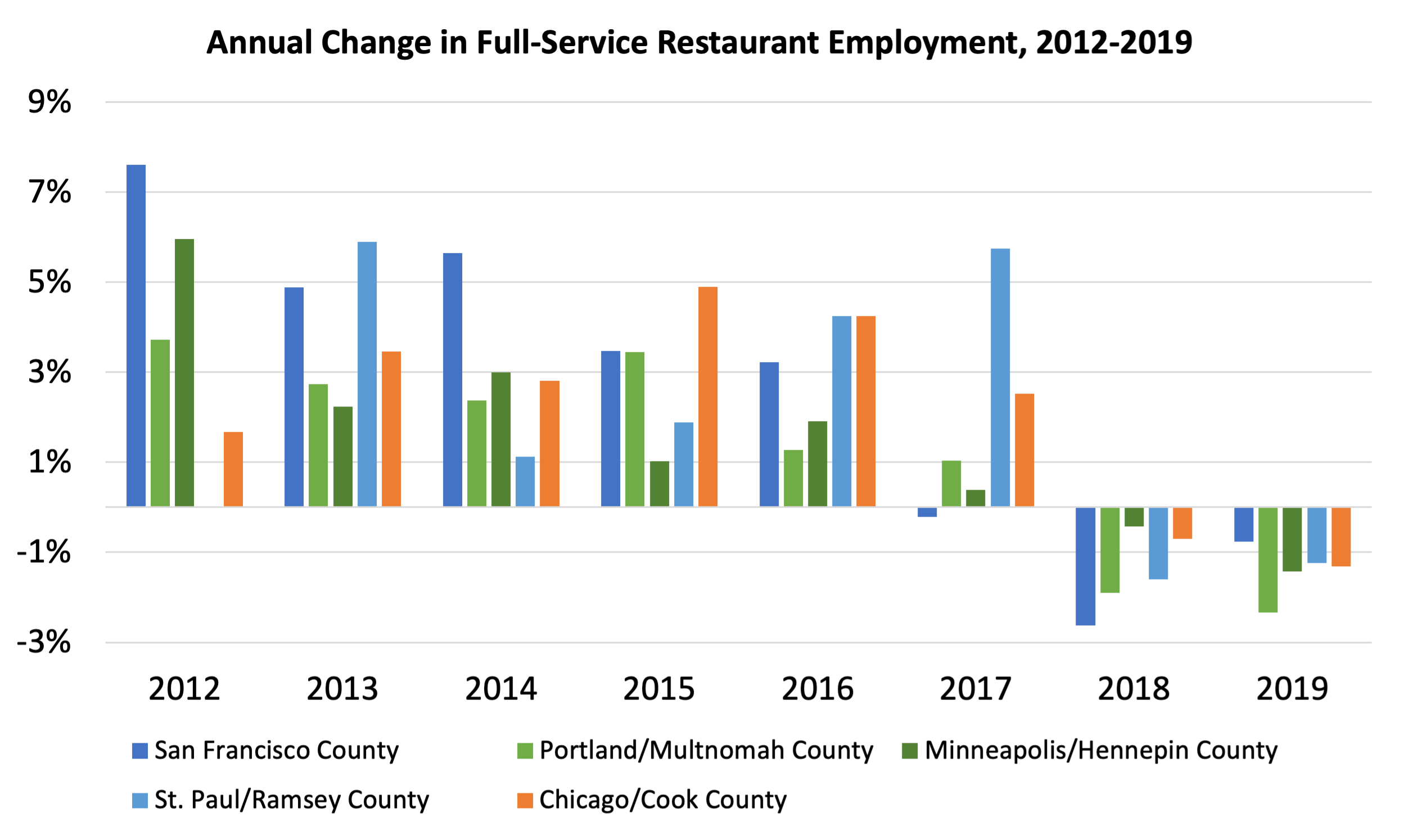As minimum wage and anti-tip credit proposals sputter to a halt at the federal and state levels, Chicago appears to be one of the last remaining targets this year for tip credit elimination.
One Fair Wage has announced a $25 million campaign to eliminate tip credits across the country, and announced its most recent push in the Windy City in recent weeks. Newly inaugurated mayor Brandon Johnson also campaigned on eliminating the city’s tip credit, and recently coupled the policy with a push to boost teen employment. Johnson even participated in One Fair Wage’s “server for an hour” event in support.
The City Council is expected to introduce a proposal to scrap the tip credit in their meeting next week. Chicago lawmakers should consider economists’ warnings that such a bill could be harmful for the city’s businesses and employees, instead of listening to union activists.
Most American labor economists agree that eliminating tip credits will reduce the number of tipped restaurant jobs available. Economists from Miami and Trinity Universities found particularly in high wage cities that don’t allow tip credits, such as San Francisco or Seattle, full-service restaurants employed 18 percent fewer tipped servers and bartenders than in cities where robust tip credits were allowed.
In fact, Chicago has already experienced this damage to a lesser degree, as the city has repeatedly raised its tipped minimum wage, making the tip credit just 40 percent of the regular minimum wage rate. Yet fully eliminating the tip credit would send the Windy City plunging further into negative annual restaurant employment growth, like its no-tip credit counterparts.
Even prior to the damage done by the pandemic, cities such as San Francisco, Portland, OR, Minneapolis, and St. Paul that don’t allow tip credits went from annual employment growth to actually losing restaurant jobs. Even as Chicago has seen its tipped minimum wage rise with some tip credit still intact, the city has also started to experience job losses in the full-service restaurant industry.
Chicago’s full-service restaurant employment growth has declined every year since it began raising the tipped minimum wage in 2015 – turning negative into thousands of lost restaurant jobs in 2018 and 2019.

The economic evidence suggests eliminating the tip credit fully could make these matters worse for Chicago’s tipped restaurant employees.
Scrapping Chicago’s tip credit would also be counterproductive to Johnson’s pledge to boost teen employment.
The economic literature on minimum wages spanning three decades finds overwhelmingly that wage hikes cost jobs specifically for younger, entry-level employees. U.S. Bureau of Labor Statistics data shows the largest share of teen workers opt to get jobs in restaurants.
Chicago’s own data shows teen unemployment rates are currently on the decline, but eliminating the tip credit means restaurant jobs, an important source of employment for teens, may become harder to find. Teens with existing jobs in the restaurant industry might find they are first on the chopping block if restaurants are forced to downsize to accommodate new tip credit elimination laws.
For these reasons and more, tipped restaurant employees have successfully defeated One Fair Wage and politicians’ attempts to get rid of the tip credit system. Chicago city councilmembers should carefully weigh the potential consequences of a law that would upend this system that works for restaurants and their employees.
